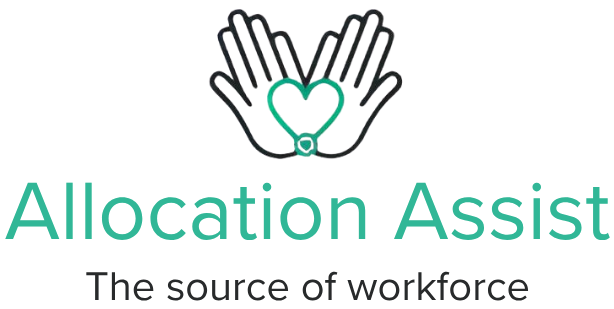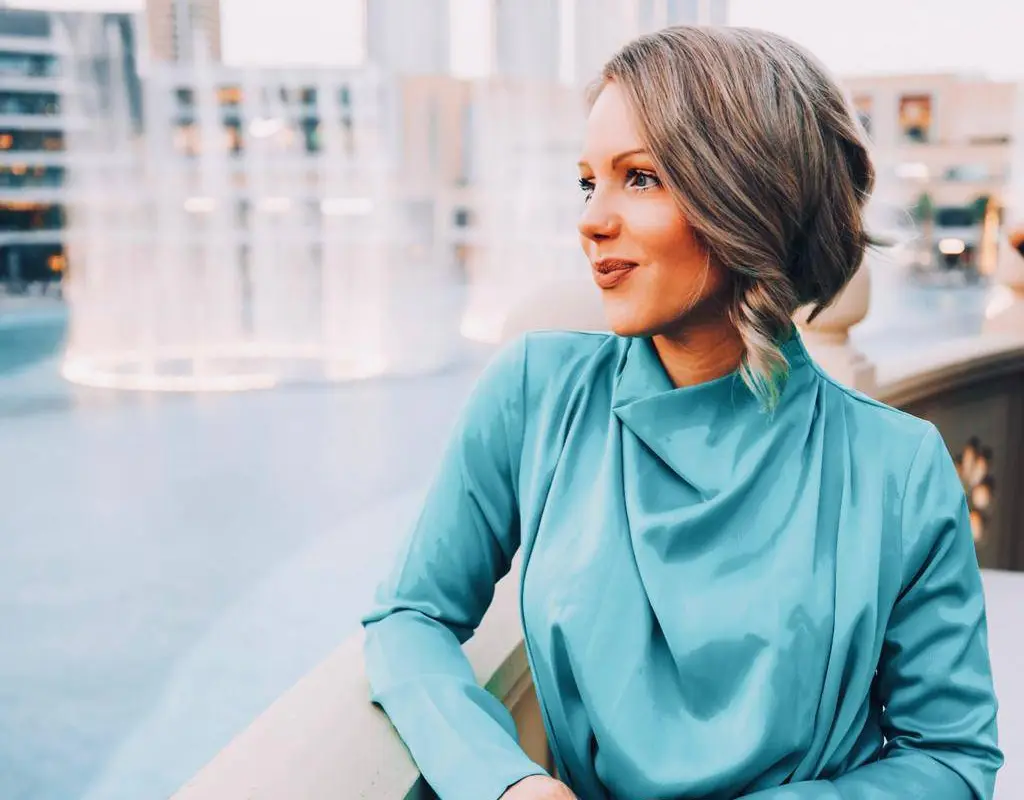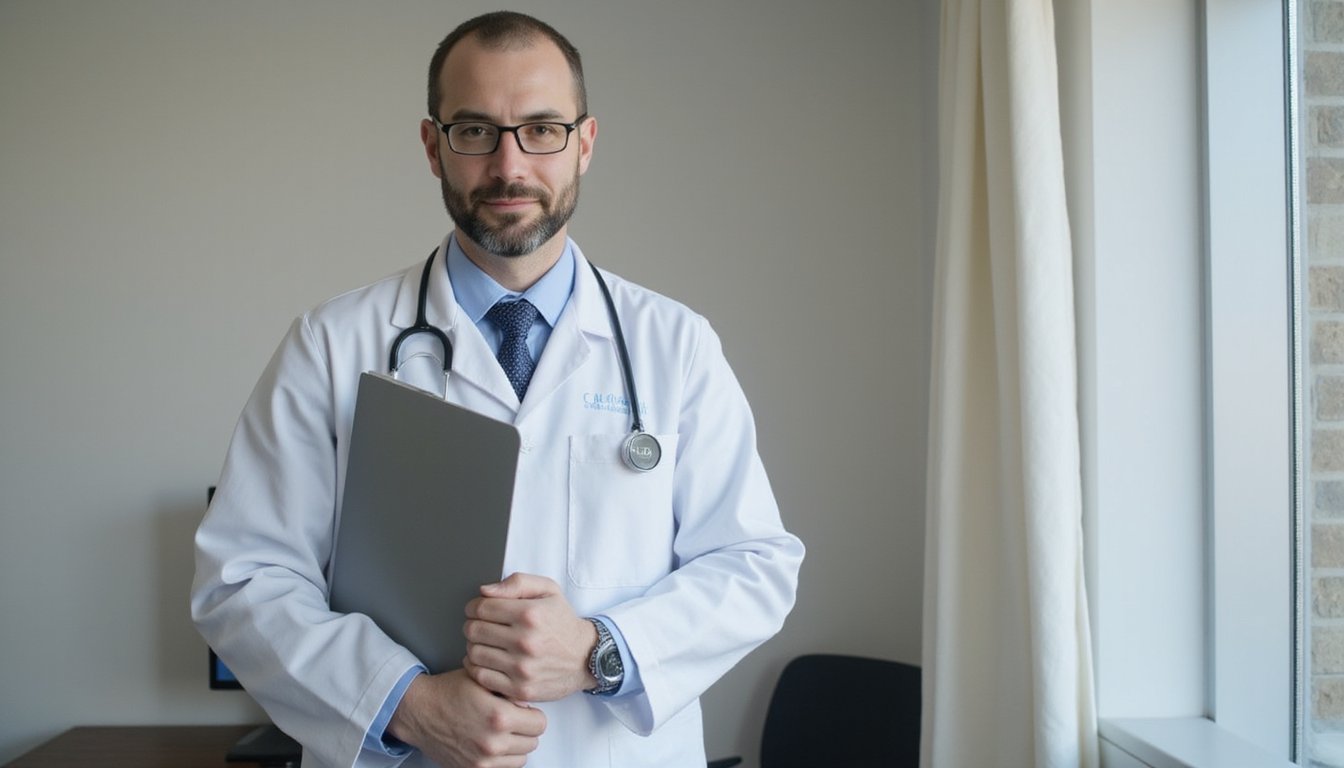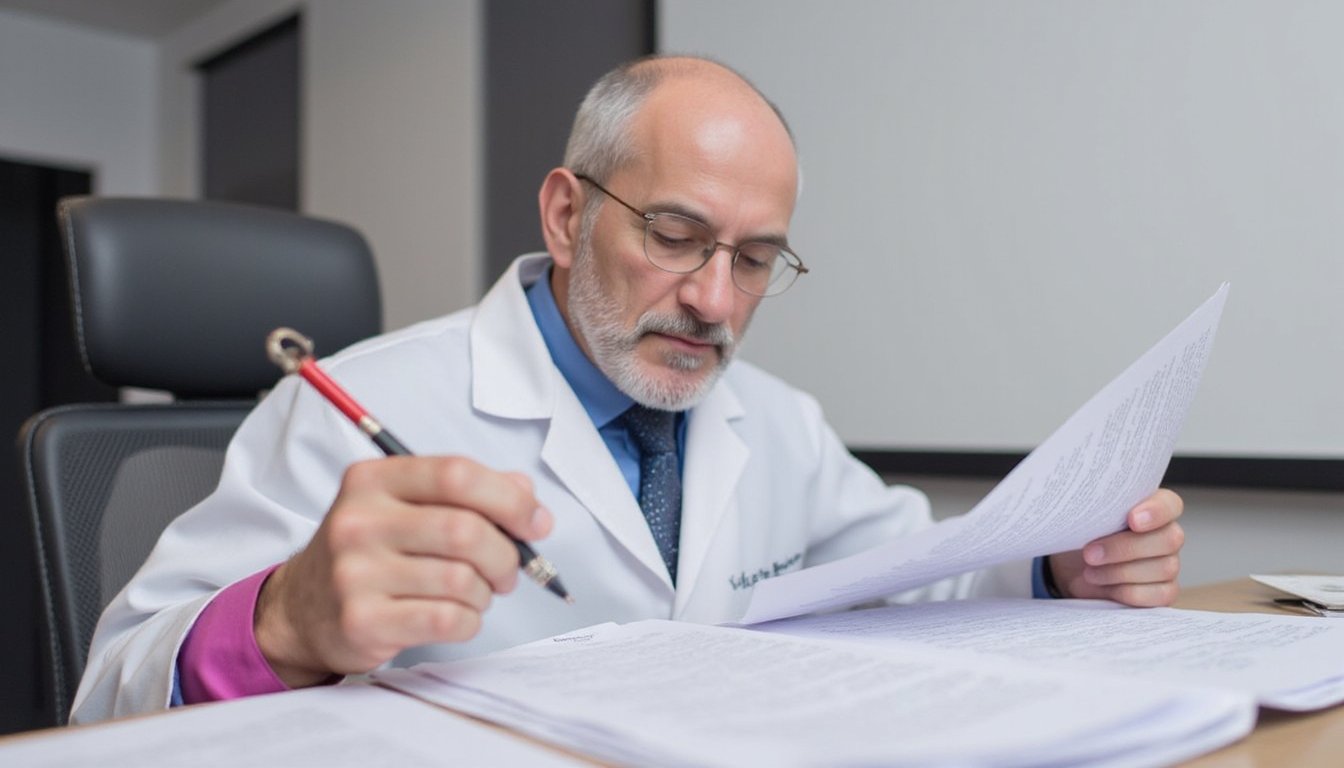Dubai’s healthcare expansion is creating over 30,000 specialized positions by 2025, with cardiologists, oncologists, and critical care nurses commanding top demand. You’ll find premium opportunities for AI-trained radiologists, molecular diagnostics scientists earning AED 10,000-20,000 monthly, and aesthetic medicine specialists exceeding AED 100,000 monthly. Healthcare administrators, clinical educators, pharmacogenomics experts, and rehabilitation therapists are equally sought after, with Golden Visa eligibility sweetening long-term prospects. The detailed breakdown below reveals specific qualifications, salary benchmarks, and strategic positioning advantages you’ll need to secure these high-value roles.
Specialist Physicians Leading Dubai’s Healthcare Transformation

As Dubai accelerates its transformation into a global healthcare hub, specialist physicians aren’t just filling clinical roles; they’re architecting the infrastructure of tomorrow’s medical landscape. You’ll find over 30,000 specialized positions emerging by 2025, with cardiology, oncology, and orthopedics leading demand due to chronic disease prevalence and medical tourism’s 20% annual growth. Smart hospitals now require you to validate AI driven diagnostics specialist outputs at 92% accuracy while interpreting blockchain records and IoT patient monitoring. As a personalized care planning expert, you’ll leverage genomics and precision medicine within multidisciplinary teams. The Golden Visa program now offers long-term residency and family sponsorship to attract top-tier healthcare professionals to the emirate. Dubai’s healthcare vision emphasizes integrated physician practice models for extensive care delivery across all medical facilities. The emirate’s JCI-accredited hospitals feature advanced medical technology that sets the standard for clinical excellence throughout the region. Licensing demands postgraduate credentials, Prometric certification, and Dataflow verification, but competitive salary bands of AED 30,000–90,000 monthly reflect your pivotal role in Dubai’s AED 118 billion healthcare expansion through 2027.
Critical Care and Emergency Nursing Roles
- Bachelor’s in Nursing minimum; Master’s preferred for supervisory advancement tracks
- Demonstrated expertise in critical thinking, trauma response, and JCI-compliant documentation
- Regional mobility via Saudi Council Exam clearance expanding your deployment options
- Talent pipeline development through mentoring programs and clinical educator pathways
- Post-COVID expansion of ICU beds and ventilator units has intensified recruitment for emergency room staff and paramedics
- Set up job alert subscriptions to receive notifications when new critical care positions become available at leading facilities
Employers bundle housing, flight allowances, and ongoing training to retain top-tier emergency and critical care professionals in this high-stakes market.
Allied Health Professionals Driving Diagnostic Excellence
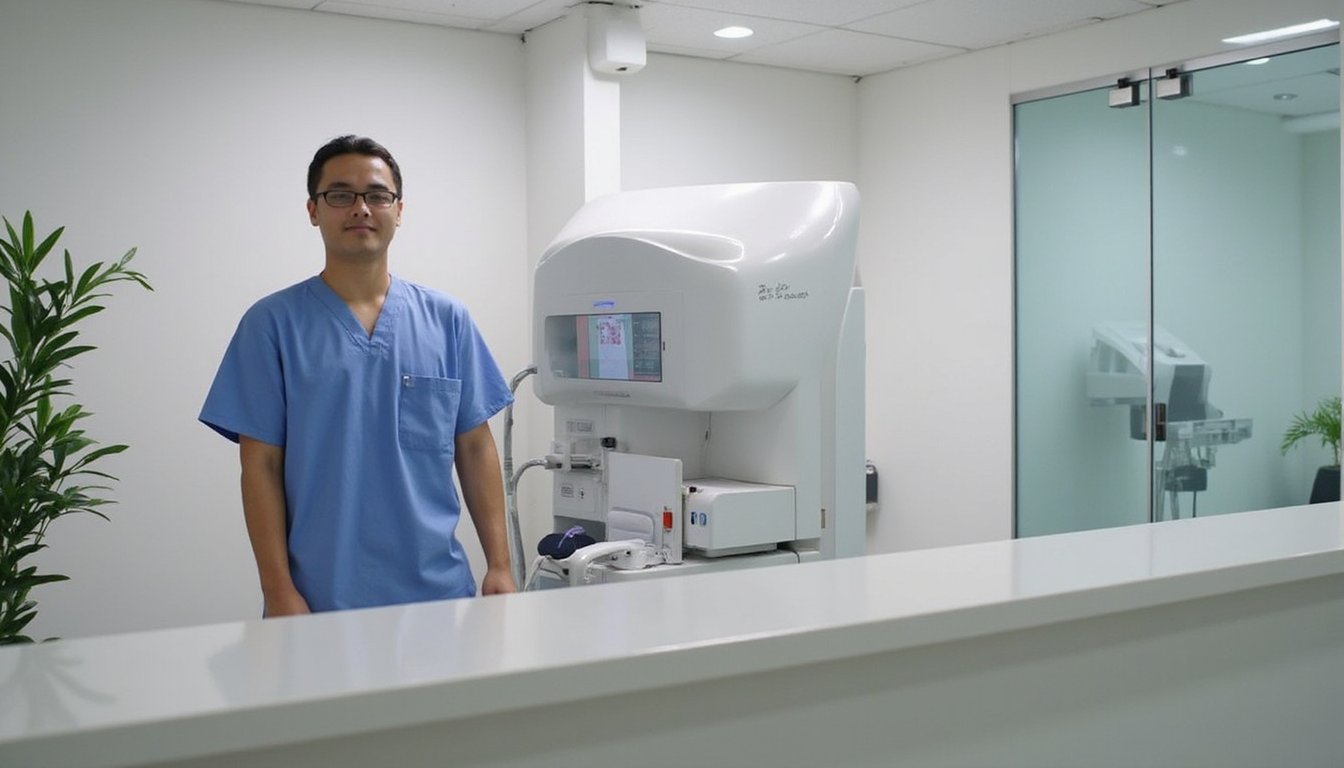
While physicians and nurses anchor Dubai’s healthcare ecosystem, allied health professionals form the diagnostic backbone that enables evidence-based clinical decisions across the emirate’s JCI-accredited facilities. Radiologists trained in AI-integrated imaging systems command premium positioning as AED 118 billion digital transformation investments reshape diagnostic workflows. Laboratory scientists specializing in molecular diagnostics earn AED 10,000-20,000 monthly, supporting precision medicine initiatives. Pathologists proficient in digital pathology systems align with NABIDH e-health integration requirements. Physiotherapists and robotic rehabilitation therapists capitalize on medical tourism expansion and post-surgical care demand. Community based rehabilitation specialists thrive in home-care models serving aging populations. Clinical pharmacists with pharmacogenomics expertise drive medication therapy management across specialty clinics. Occupational therapists fill developmental support roles. Medical imaging technologists operate advanced MRI, CT, and ultrasound equipment in expanding private diagnostic centers. Medical technologists with specialist qualifications in radiology serve various healthcare facilities with opportunities for professional development and specialization. AI systems are analyzing medical images with unprecedented accuracy, creating demand for radiologists who can interpret AI-assisted diagnostics and validate automated findings. Healthcare recruitment agencies coordinate licensing exam preparations, including Dataflow verification and DHA requirements, to ensure candidates meet Gulf regulatory standards.
Healthcare Administration and Clinical Education Positions
Dubai’s healthcare infrastructure expansion has generated over 130 specialized administration openings that bridge clinical operations with regulatory compliance frameworks, positions you’ll find commanding AED 3,000-5,000 monthly with performance incentives.
You’ll need 3-8 years of UAE healthcare experience for management-level roles focusing on healthcare informatics management and data security protocols. Clinical education positions demand expertise in guideline implementation and clinical quality improvement initiatives across multidisciplinary teams.
High-demand administration and education roles require:
- Proficiency in healthcare data analysis, reporting systems, and regulatory compliance documentation
- Clinical protocol development skills with quality assurance framework knowledge
- Bilingual fluency (English/Arabic) for effective stakeholder communication
- Certifications in healthcare administration or clinical education management
These roles offer tax-free compensation, medical coverage, and strong advancement trajectories within Dubai’s expanding healthcare sector. Leading healthcare institutions provide in-house development programs that support continuous professional growth through customer service and management training initiatives.
Emerging Opportunities in Aesthetic Medicine and Medical Technology
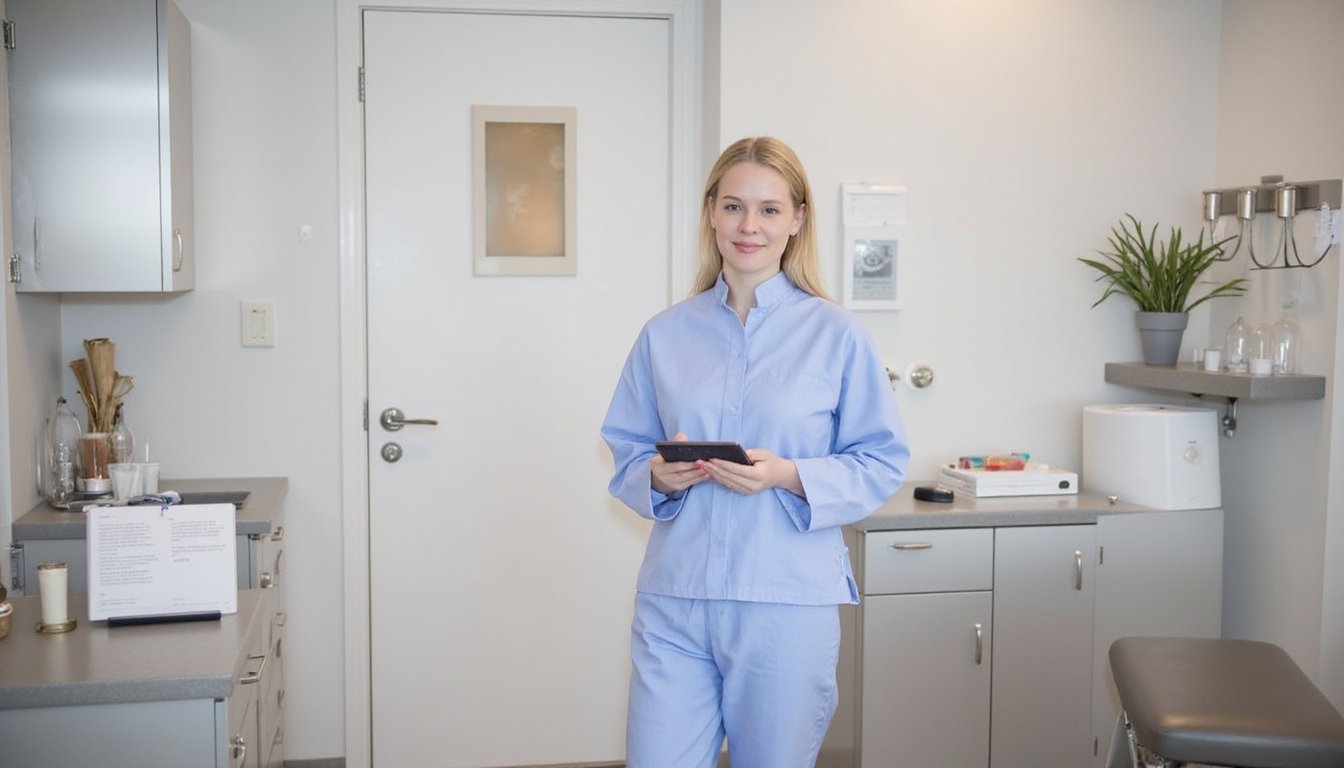
Beyond traditional healthcare pathways, aesthetic medicine has emerged as Dubai’s fastest-growing medical sector, with the UAE market reaching US$ 402.4 million in 2024 and projecting 10–11% annual growth through 2030.
You’ll find lucrative opportunities as aesthetic doctors, dermatologists, and laser therapists earn over AED 100,000 monthly in premium clinics. DHA licensing remains mandatory for all practitioners. The sector’s evolution demands expertise in the integration of advanced aesthetic devices like Morpheus 8 and RF lifting systems, while data-driven patient experiences have become industry standard. Estheticians in Dubai earn an average annual salary of AED 85,880, with experienced professionals reaching up to AED 128,500 per year, making it one of the highest paying jobs in the emirate. Leading establishments like EDEN AESTHETICS Clinic Dubai seek specialists with minimum three years of relevant experience to maintain their premier standards in beauty and aesthetics services.
Your career advancement requires mastering non-invasive procedures, botox, fillers, body contouring, alongside digital platform proficiency. Medical tourism and Vision 2030 initiatives continuously expand clinic openings, creating abundant positions for qualified specialists who combine clinical excellence with technology adoption and regulatory compliance understanding. The dermatology field offers particularly lucrative prospects in aesthetic medicine, driven by Dubai’s affluent population and increasing consumer demand for cosmetic procedures.
Frequently Asked Questions
What Qualifications Are Required to Work as a Healthcare Professional in Dubai?
You’ll need a recognized healthcare degree from a DHA-accredited institution, plus two years of clinical experience in most cases. Licensing requirements include passing the DHA Prometric Exam, obtaining a Good Standing Certificate, and completing DataFlow verification. You must hold a valid home country license too. Meeting these standards opens significant career progression opportunities across Dubai’s expanding healthcare sector, where networking with established professionals and staying compliance-focused will accelerate your professional growth and specialty advancement.
Do Healthcare Workers in Dubai Receive Accommodation and Relocation Assistance?
Many Dubai healthcare employers offer housing allowances or on-site accommodation, particularly for mid-level and senior roles. You’ll find relocation packages commonly include visa sponsorship, flights, and initial housing for international hires. Junior staff typically receive fewer benefits, often sharing accommodations or living in nearby emirates. If you’re joining an organization with 50+ workers earning ≤AED 1,500 monthly, they’re legally required to provide compliant housing. Your package quality depends on your specialization, seniority, and the institution’s resources.
How Does Dubai’s Healthcare Salary Compare to Other Middle Eastern Countries?
Dubai’s healthcare salary stands at the region’s top, driven by medical salary comparison data showing specialists earn AED 30,000–80,000 monthly versus lower rates in Saudi Arabia, Qatar, and Kuwait. You’ll benefit from tax-free income while healthcare job market trends reveal neighboring countries impose taxes and offer fewer perks. Dubai’s private sector pays premium wages, reflecting high demand for international talent. You’re positioned to maximize earnings here, especially with housing allowances, bonuses, and all-inclusive benefits packages unavailable elsewhere regionally.
What Is the Visa Sponsorship Process for International Healthcare Professionals?
Your employer initiates the visa application procedure by securing a work entry permit after issuing your signed employment contract details. You’ll complete DHA licensing (3-6 months), undergo medical fitness tests, and register for Emirates ID in Dubai. Your sponsor covers AED 3,000-7,500 in licensing fees plus AED 3,750-6,000 for visa issuance. They’ll manage all submissions digitally, ensuring compliance with MOHRE requirements. Final visa stamping grants legal residency; the entire process takes 2-4 weeks once documentation’s verified.
Are There Continuing Education Requirements for Maintaining Medical Licenses in Dubai?
Yes, you’ll need to meet strict continuing education requirements to maintain your Dubai medical license. Physicians must earn 40 CME points annually, while nurses and pharmacists need 20. The license renewal process happens yearly through the Sheryan portal, where you’ll upload CPD certificates, malpractice insurance, and documentation. Start renewing 90 days before expiry to avoid penalties. Missing requirements can trigger reassessment or license cancellation, so stay proactive with tracking your credits.
